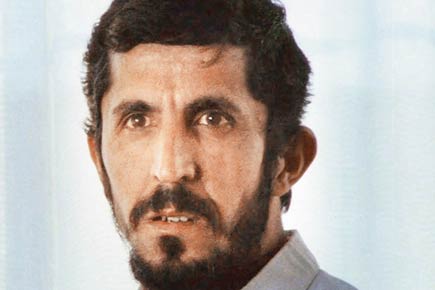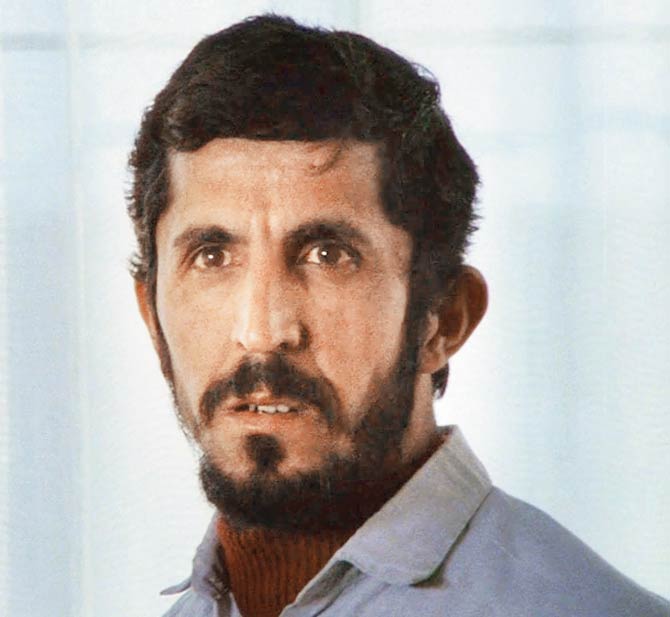There’s a killer line in Taste of Cherry, directed by Abbas Kiarostami, that great Iranian poet of the cinema, who passed away last week

 There’s a killer line in Taste of Cherry, directed by Abbas Kiarostami, that great Iranian poet of the cinema, who passed away last week. The film is about a morose-looking man, Mr Badii, who drives around the hills beyond Tehran, looking for someone who is willing to bury him when he commits suicide. A series of men he tries to persuade, skedaddle off. At one point, he tells one of them, “I know suicide is one of the deadly sins. But, being unhappy is a great sin too. When you are unhappy, you hurt other people. Isn’t that a sin too?”
There’s a killer line in Taste of Cherry, directed by Abbas Kiarostami, that great Iranian poet of the cinema, who passed away last week. The film is about a morose-looking man, Mr Badii, who drives around the hills beyond Tehran, looking for someone who is willing to bury him when he commits suicide. A series of men he tries to persuade, skedaddle off. At one point, he tells one of them, “I know suicide is one of the deadly sins. But, being unhappy is a great sin too. When you are unhappy, you hurt other people. Isn’t that a sin too?”
ADVERTISEMENT
 A still from Abbas Kiarostami’s 1990 film Close-Up
A still from Abbas Kiarostami’s 1990 film Close-Up
It’s such a Kiarostami idea — of unhappiness being a great sin. That we owe it to ourselves to be happy in this lifetime. His films are replete with philosophical ideas like that, couched in personal stories, often with long takes of magnificent landscapes or people in the driver’s seat of a car. Finally, Mr Badii lies in his grave at night, but awakens the next morning to sounds of a film shoot, and immediately curious, goes to find out about the film. Turns out it’s partly fake, as the shoot is “only for sound,” — but cinema has already saved Mr Badii’s life.
Of the many great films Kiarostami made, Close-Up remains close to my heart. “Close-Up is the only film I really like among my films,” Kiarostami once told the media. In addition to its complex docu-fiction artistry, there is such generosity in Kiarostami, then 49, making a film openly tributing fellow and rival filmmaker Mohsen Makhmalbaf, then just 32, who had started out as a radical Islamist and publicly denounced pre-revolutionary directors, including Kiarostami. The film is a docu-fiction on a poor fellow, Hossein Sabzian, who is tried in court for attempted fraud for impersonating the director Makhmalbaf in real life; in the film, the impersonator Sabzian plays himself playing Makhmalbaf — delightful! A haunting paean to the artistic aspirations of the most dispossessed among us. When Kiarostami asks the arrested Sabzian if he can help, he says he has a message for Mr Makhmalbaf: (Tell him) “His ‘The Cyclist’ is part of me”--and eventually secures pardon. Another life saved by cinema.”
Mr Kiarostami, also an accomplished painter, photographer, illustrator and graphic designer, had earlier worked as a traffic policeman to support his master’s in fine arts. He once told the press, “Maybe more than a teller, I am a story listener. I really enjoy listening to stories. All of my films are a collection of small stories that have been told to me.” Asked how he chose his students in the film school in Iran where he taught, he replied, “I don’t ask if they have studied film or any education in general. What I ask them is to come and sit and tell me a story, and the way they choose it and tell it, become for me, the best criteria for whether they are right for making films. There’s nothing more important than being able to tell your story orally.”
I once met Kiarostami at the Busan Film Festival; we were introduced by Sri Lankan filmmaker Vimukthi Jayasundara. Suddenly tongue-tied in the presence of greatness, and uncertain if handshakes were permissible, I bowed low and touched my hand to my forehead in a salaam. Graciously, he bowed low and touched his hand to his heart, as we both smiled broadly. I will always cherish that beautiful, wordless moment.
Meenakshi Shedde is South Asia Consultant to the Berlin Film Festival, award-winning critic, curator to festivals worldwide and journalist. Reach her at meenakshishedde@gmail.com.
 Subscribe today by clicking the link and stay updated with the latest news!" Click here!
Subscribe today by clicking the link and stay updated with the latest news!" Click here!






